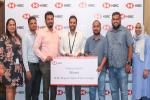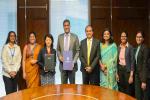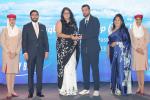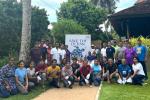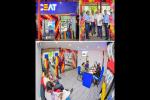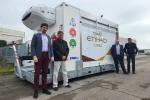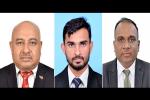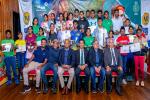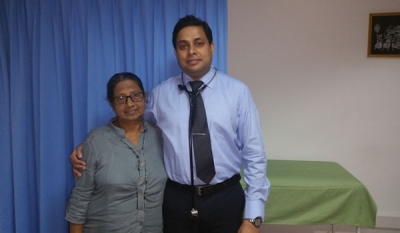The Hospital announced that it had used patients’ own bone marrow derived stem cells to treat heart conditions where traditional interventions were not successful or advisable.
Bone marrow derived peripheral stem cell therapy, which uses the restorative and curative powers to replace damaged cells and restore cardiac function is a new medical frontier for those suffering from deadly heart diseases.
“Stem cell therapy can enhance and repair the dying heart muscle and induce new blood vessel formation while reducing immunological damage to the heart.
Since 2008, medical researchers have been conducting clinical trials of this new technology for chronic heart disease and it is increasingly being recognized as a way forward in terms of regenerating the failing heart.
There is evidence to indicate a tendency of new cells to reduce immune mediated damage, increase small blood vessel regeneration and sometimes, integrate into the heart muscle by acquiring its properties,” commented Dr Pandula Athauda-arachchi, Resident Consultant Interventional Cardiologist, who has a PhD and, is a Gates Scholar from University of Cambridge on the subject, was instrumental (along with expert support of consultant hematologists; Dr Mala Tudawe, Dr Ajith Kularatne and Dr Nipunika Senadheera) in this procedure, performed at Durdans Hospital Colombo.
Durdans Heart Centre conducted its first two successful stem cell treatments on patients whose heart function didn’t improve beyond 25 percent following bypass surgery.
The patients’ history of a previous heart attack and delayed treatment had triggered complications such as fluid accumulation in lungs and loss of appetite.
However, they safely tolerated the procedures, responded well to the bone marrow stem cell therapy and show signs of improvement, the hospital revealed.
“Using a patient´s own bone marrow stem cells not only helps to rebuild the fragile and damaged tissue, but also potentially avoids the risk of having the cells rejected.
It offers new hope for intractable heart failure, which kills many patients worldwide, sometimes even more than cancers, when other treatments have failed, added Dr Athauda-arachchi.
Chronic Total Occlusions : The second patient had endured a heart attack with 100% blockade of a main left coronary artery nearly 20 years ago (chronic total occlusion (CTO), before developing debilitating symptoms due to disease in the other arteries in the heart as well.
However, due to the potential risk of a stroke, combined with other medical complications, cardiothoracic surgeons were unable to perform a bypass surgery on her.
Accordingly, Dr Pandula Athauda-archchi and his team from the Durdans Heart Centre successfully unblocked all the arteries including the 20 year old blockade in this particular case, all under local anesthetic, with no complications.
Successful treatment in difficult situations such as this is a rare occurrence made doubly so by the patient’s minimal 48 hour stay at the hospital.
Left main coronary calcification Rotablation : The third patient suffered 90% blockade with atheroma and heavy calcium deposition of the left main coronary artery itself and at the age of 84 years, she was not fit for a bypass operation.
Dr Athauda-arachchi used a high speed drilling of calcium (Rotablation ) of left main coronary and on both daughter vessels (a very high risk procedure) on this particular patients and successfully stented the artery, under local anesthetic without any complications.
This case was presented to an international audience at the Euro PCR Intervention Congress held in Paris recently.
The Euro PCR is an annual event where interventional cardiologists throughout the world share their stories, breakthroughs and ideas in the hope of translating new scientific knowledge into meaningful advances in patient care.
